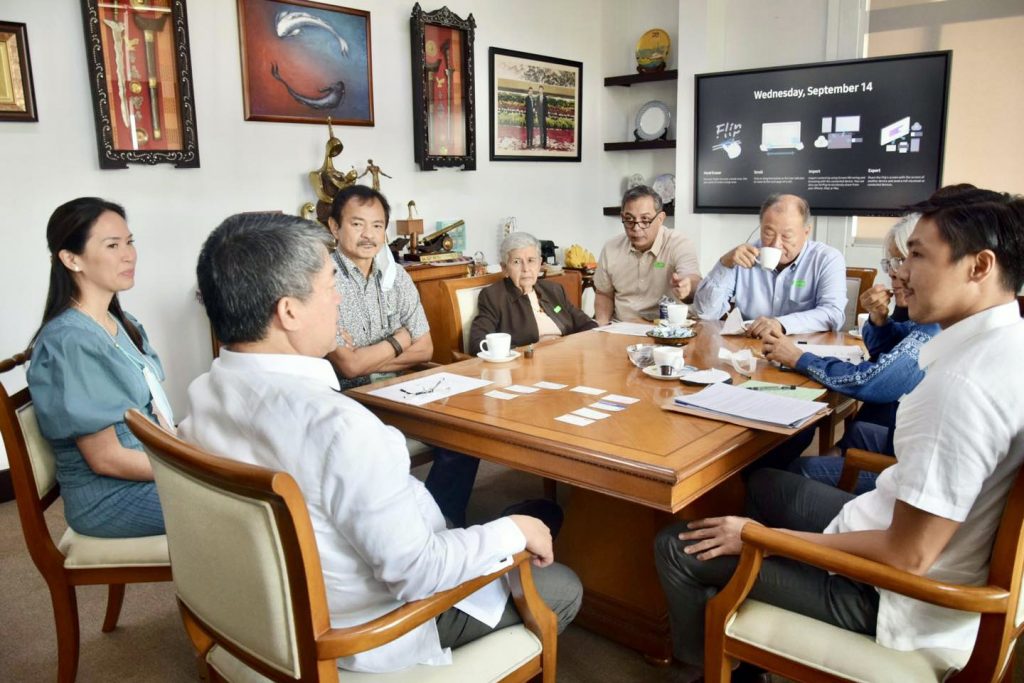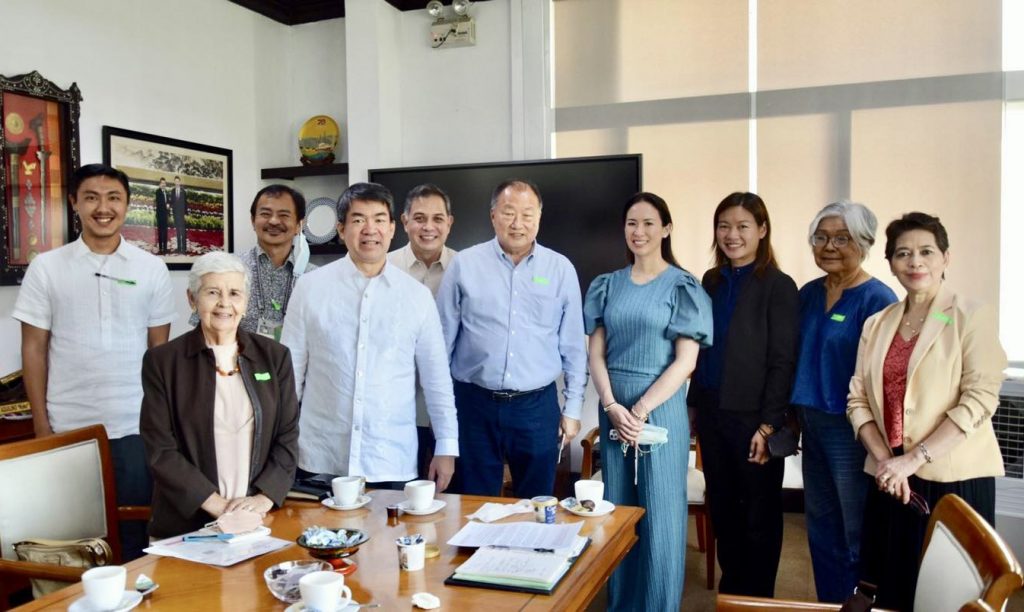
Members of the National Banner Program Committee on High Value Crops-Fiber (NBPC on HVC-Fiber) and other abaca industry players met with Senate Minority Leader Aquilino Martin “Koko” Pimentel on September 14, 2022 in his office in Pasay City.
The group requested a meeting with the Senator to discuss the continuous production of the 1000-piso polymer banknotes issued by the Bangko Sentral ng Pilipinas (BSP).

In April 2021, the Philippine Fiber Industry Development Authority (PhilFIDA) endorsed to the Philippine Council for Agriculture and Fisheries (PCAF) a position paper to appeal to the concerned authorities to reconsider the plan or idea to use polymer instead of abaca-cotton for the Philippine banknotes or currency.
In the same month, NBPC on HVC-Fiber supported PhilFIDA’s position paper through a resolution recommending to BSP to retain the use of abaca fiber in the Philippine banknotes in support of the local abaca farmers.
The private sector-partners highlighted to Sen. Pimentel that using polymer will not assure security and will entail additional cost to the government in the production process.
It was recalled that the Senator asked BSP to “immediately suspend the production of ‘impractical’ PhP1000 polymer bills”.
He mentioned that using polymer in the new bill, instead of indigenous abaca or internationally known as Manila Hemp, will be detrimental to the livelihood of local abaca producers. It will also be impractical to many Filipinos who usually store their bills in pockets or purses because it cannot withstand minimum abuse like folding or crumpling.
The group also added that the Philippine banknotes, made of 20% abaca and 80% cotton, have outstanding characteristics because of the abaca fiber content.
The abaca fiber is the strongest among natural fibers and has superior qualities over other materials. According to PhilFIDA, it is far more resistant to salt water decomposition than most vegetable fibers, making it suitable for rope or cordage manufacture.
“Abaca is a Filipino heritage and we should truly treasure it. By using it in our currency, we have showcased its strength and helped the abaca industry and its farmers,” said PCAF OIC Executive Director Julieta Opulencia.
Aside from PCAF and PhilFIDA, private sector-partners present in the meeting include NBPC on HVC-Fiber Chairperson Michael Claparols, Association of Abaca Pulp Manufacturers, Inc. Executive Director Aurora Peralta, Alindeco President Nelson Lim, Pulp Specialists Phils. Inc. Victor Villareal, Specialty Pulp Manufacturing, Inc. Vice President Charina Lim Tan, and HABI Chairperson Maria Isabel Ongpin. | JC











